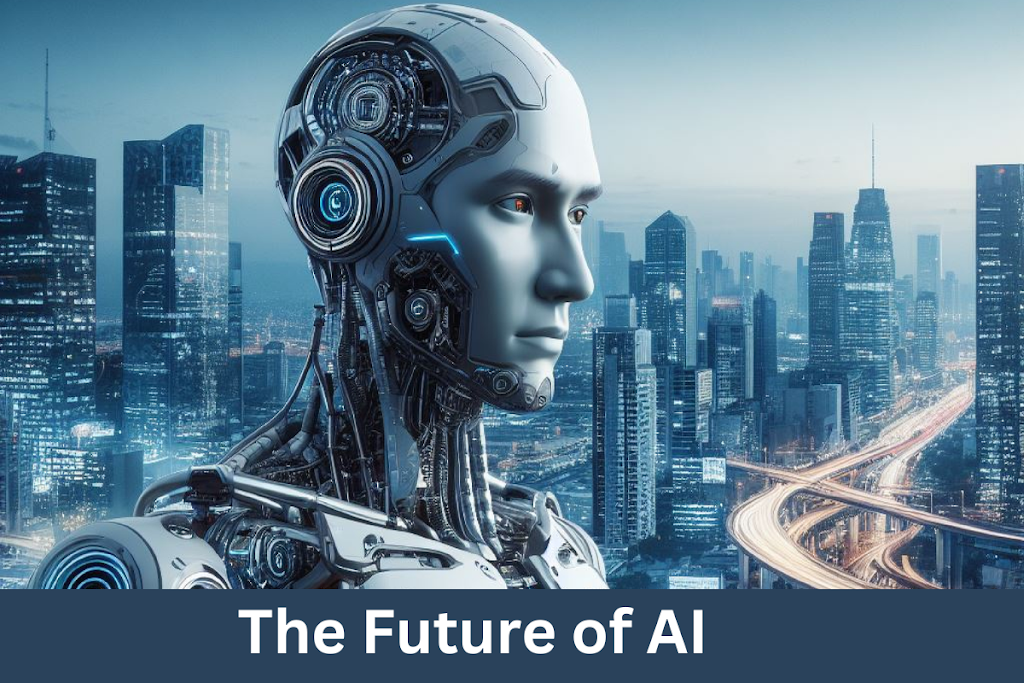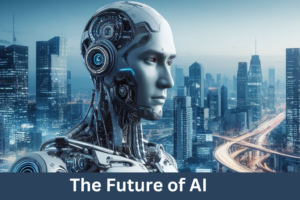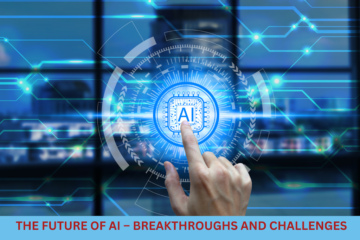The Future of AI: How Artificial Intelligence is Reshaping Our World
Artificial Intelligence (AI) has rapidly transformed various aspects of our lives, from automating routine tasks to making critical decisions in healthcare, finance, and transportation. As AI continues to evolve, its impact on society grows stronger, bringing both groundbreaking advancements and significant challenges. In this article, we will explore how AI is reshaping our world, the key breakthroughs in this field, and the challenges we must address to ensure its ethical and responsible development.
Breakthroughs in AI
1. AI in Healthcare
AI has revolutionized the healthcare industry by improving diagnostics, personalizing treatment, and enhancing patient care. Machine learning algorithms can analyze vast amounts of medical data, detect patterns, and assist doctors in making accurate diagnoses. AI-powered robotic surgeries are becoming more precise, reducing human errors and improving recovery times. Moreover, AI chatbots and virtual assistants are making healthcare more accessible by providing instant medical advice and support.
2. AI in Business and Finance
Businesses are leveraging AI to streamline operations, enhance customer service, and optimize decision-making. AI-powered chatbots, predictive analytics, and automation tools are increasing efficiency and reducing operational costs. In the finance sector, AI-driven algorithms are used for fraud detection, risk assessment, and automated trading, ensuring faster and more reliable financial transactions.
3. AI in Transportation
The transportation industry is witnessing a major shift with the integration of AI. Self-driving cars, powered by AI and machine learning, are expected to reduce traffic accidents and improve road safety. AI also plays a crucial role in optimizing traffic management systems, reducing congestion, and enhancing public transportation efficiency.
4. AI in Education
AI is transforming education by personalizing learning experiences and automating administrative tasks. AI-driven platforms analyze student performance, identify learning gaps, and offer customized recommendations. Virtual tutors and AI-assisted grading systems help educators focus more on teaching rather than administrative work.
5. AI in Entertainment and Media
The entertainment industry is experiencing a creative revolution with AI-generated content, deepfake technology, and advanced recommendation algorithms. Streaming services use AI to suggest personalized content based on user preferences, while AI-generated scripts and music compositions are pushing creative boundaries.
Challenges of AI Development
Despite its numerous benefits, AI also presents significant challenges that need to be addressed to ensure responsible and ethical implementation.
1. Ethical Concerns and Bias
AI systems can sometimes reflect human biases present in their training data. This can lead to unfair decisions in hiring, lending, and law enforcement. Ensuring fairness, transparency, and accountability in AI decision-making is crucial to prevent discrimination and unethical practices.
2. Job Displacement and Workforce Changes
As AI automates various tasks, there is a growing concern about job displacement. While AI creates new opportunities, it also renders some jobs obsolete. Reskilling and upskilling the workforce is essential to prepare individuals for AI-driven industries.
3. Security and Privacy Risks
AI-powered technologies collect vast amounts of data, raising concerns about privacy and cybersecurity. Protecting sensitive information from data breaches and ensuring AI systems comply with regulations like GDPR are critical challenges.
4. AI and Misinformation
The rise of deepfake technology and AI-generated content poses risks related to misinformation and fake news. AI can be used to manipulate media, creating false narratives that can influence public opinion and elections.
5. The Need for Regulation
As AI continues to advance, governments and organizations must establish clear regulations and guidelines for its ethical use. Balancing innovation with ethical considerations is necessary to prevent AI from being misused.
The Road Ahead
The future of AI holds immense potential, but it also demands careful planning and ethical considerations. Collaboration between governments, industries, and researchers is essential to create AI systems that benefit humanity while minimizing risks. As AI becomes an integral part of our lives, continuous monitoring, regulation, and responsible development will ensure that it remains a force for good.
In conclusion, AI is reshaping our world in profound ways, offering numerous advantages while presenting new challenges. By addressing these challenges head-on and promoting ethical AI practices, we can harness the power of artificial intelligence to build a better and more efficient future for all.






